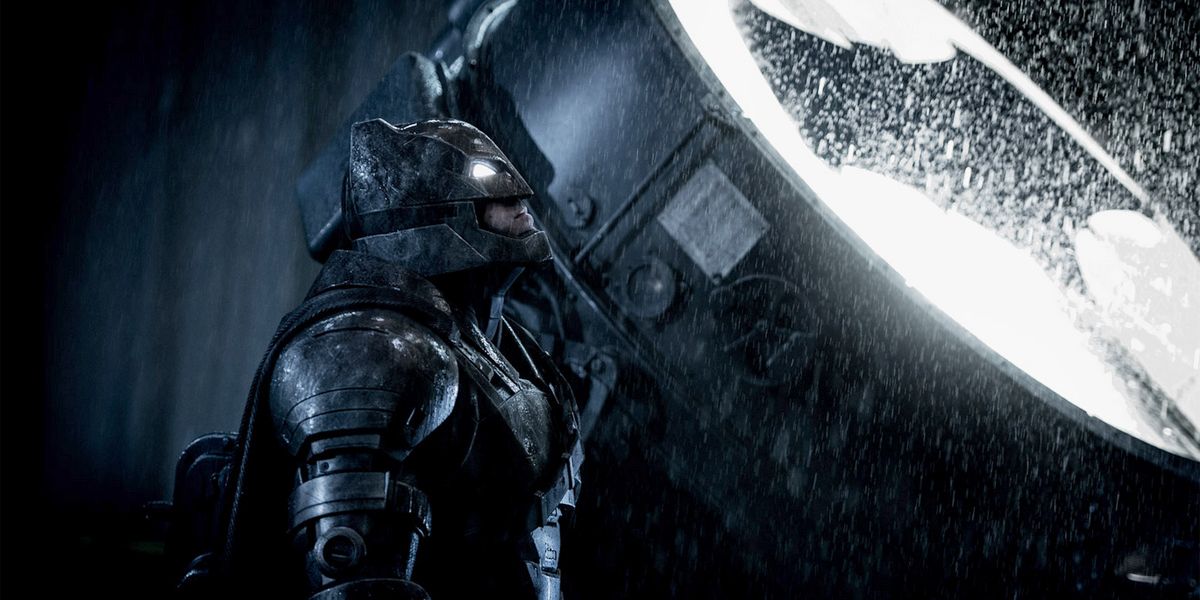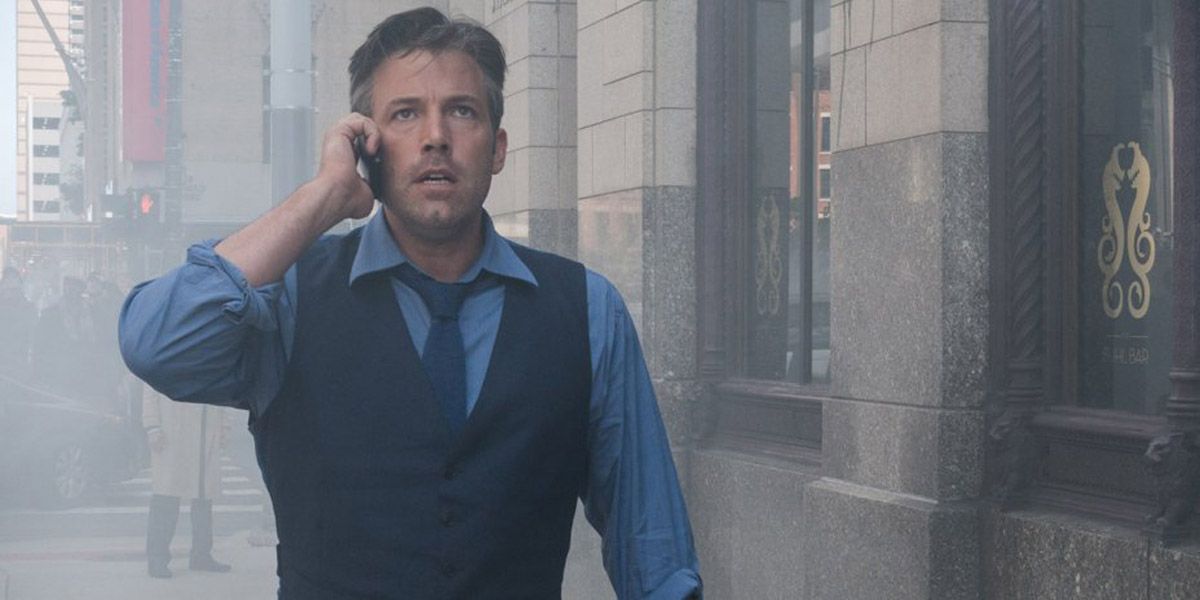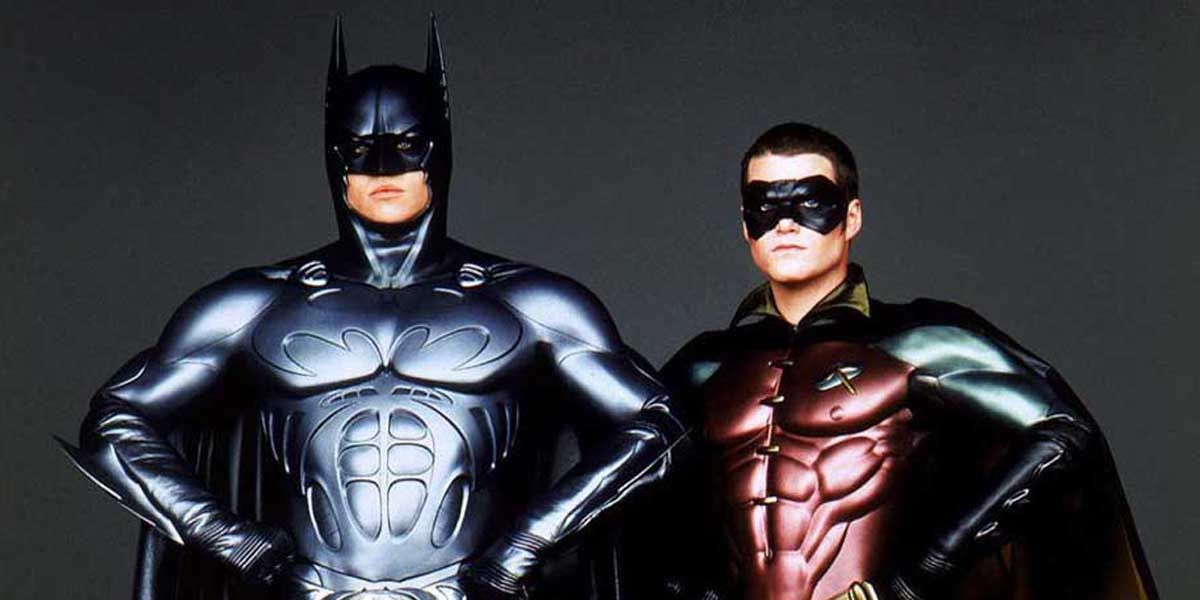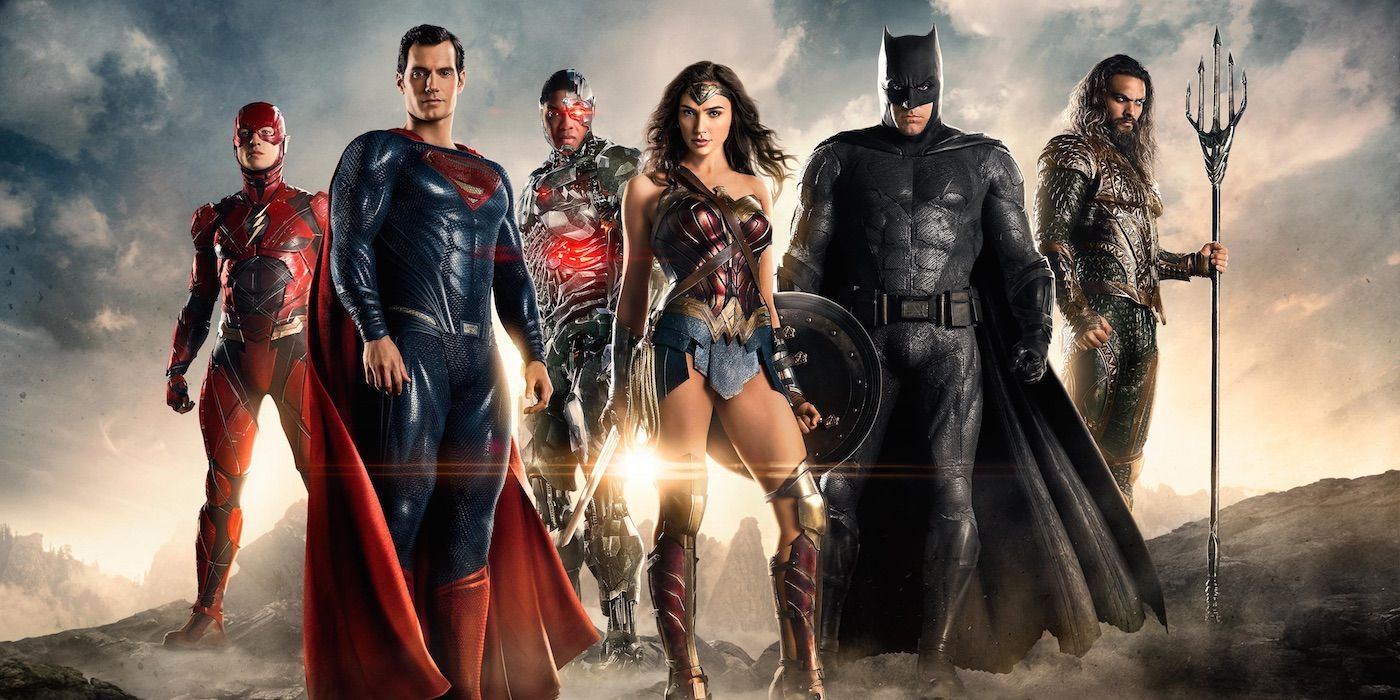The possibility that Ben Affleck and Warner Bros. are plotting his swift departure from Gotham City is, let's face it, far less surprising than his 2013 casting in what would become Batman v Superman: Dawn of Justice. Now that was unexpected, particularly because, at the time, the studio was rumored to be courting Affleck, fresh off The Town and Argo, to direct Justice League.
RELATED: DCEU's Batman Family of Films Will Follow the Comics Blueprint
It was a divisive decision, with outraged fans summoning the ghosts of Daredevil and Gigli as they gnashed their teeth at the mere thought of "Batfleck." Within hours of the news, more than 30 petitions were launched calling for the removal of Affleck; one even sought a presidential decree barring the actor from playing any superhero. “His acting skill is not even close to being believable as Bruce Wayne," one of the petitions read, "and he won’t do the role justice. He’s not built, nor is he intimidating enough for the role of Batman."
But of course Affleck was believable as Bruce Wayne and intimidating enough as Batman, even if he didn't conform to every fan's ideal. He was, as the actor signaled early on, a “tired and wearied and seasoned” Dark Knight. He was also, it turned out, far from the worst thing about Batman v Superman, or Suicide Squad, for that matter. Even Batfleck haters have to admit that.
However, Affleck never seemed entirely comfortable with the role -- not onscreen, necessarily, but with the scrutiny and high expectations that accompany Batman. That became evident first in his response to negative reactions to Batman v Superman, which apparently blindsided everyone involved with the film, including Warner Bros. (cue the Sad Affleck meme), and then in his, let's say, complicated relationship with The Batman.
On the heels of Batman v Superman, an eager (perhaps over-eager) Warner Bros. confirmed long-rumored plans for a Batman solo film, with Affleck as its director, co-writer and star, and soon staked out a 2018 release date. All the while, Affleck fired signal flare after signal flare, warning that he was in no rush to move into production, that he wasn't quite satisfied with the script and, heck, there might not actually exist just yet. His frustrations with the suffocating world of the Dark Knight couldn't be more clear.
“Oh, my God, it’s such a pain in the ass,” Affleck said in mid-January about the incessant Batman questions. “It’s like every time I mention Batman it gets this huge clickbait. When I was doing this movie it took me two years to get it together, but nobody ever asked me, ‘Where’s Live by Night?’ You know? They ask me ‘Batman, Batman, Batman.’" Two weeks later, Warner Bros. announced he was no longer directing the film.
Amid the frenzy surrounding the search for Affleck's replacement behind the camera -- the job went to Matt Reeves -- a rumor emerged the actor might no longer be interested in playing Batman, either. Reeves did his best to silence those whispers last month, when he was asked whether Affleck would still star in The Batman, expected to begin production in early 2018. "“Yeah, right now that’s exactly what’s going on," the director offered, somewhat unconvincingly, "for sure.” Nevertheless, the rumor came roaring back Friday, on the eve of Warner Bros.' film presentation at Comic-Con International in San Diego, with the assertion the studio is looking for a way to "gracefully" transition from Affleck to a new Dark Knight, sooner rather than later. That would make Affleck's involvement in The Batman unlikely, and the promotional push for Justice League a tad uncomfortable.
It's certainly possible Affleck could take to the stage in Hall H this afternoon and announce a new multi-picture deal that would see him playing Bruce Wayne well into his fifties. But if he doesn't (and, come on, he probably won't), what does that mean to the Batman film franchise, and the larger DC Extended Universe?
Much like James Bond, there's a film tradition of the role of Batman passing from one actor to another, dating back two decades to when Val Kilmer succeeded Michael Keaton in 1995's Batman Forever; George Clooney, Christian Bale and Affleck followed in the subsequent 19 years. Longer still is the tradition of fans outraged by the casting decisions: Long before Twitter and Change.org, Warner Bros. received some 50,000 letters protesting the selection of Keaton for 1989's Batman.
RELATED: Learn How Ben Affleck’s Batsuit Was Made
While fans continue to debate which actor is the best live-action Dark Knight, in the end, it matters little who's beneath the cowl, or who's roaming the halls of Wayne Manor. Oh, sure, there are some basic physical requirements (lessened somewhat by advancements in sculpted Batsuits), including a square jaw, and a gravelly voice that can deliver lines like "Tell me where the trigger is. Then ... you have my permission to die!" without provoking too much laughter. But audiences flock to theaters to see Batman. Thus, Batman perseveres, no matter the film, the actor or, lord help us, the costume. The Dark Knight, and the franchise, survived the Bat-nipples and scenery chewing of 1997's Batman & Robin, although both had to nurse their wounds for eight years. The loss of Affleck after three films released over the course of two years (counting the Suicide Squad cameo) will barely register.
However, Affleck's departure may be more difficult for Warner Bros. to weather, not because of what the actor brings to the table, but because Batman has never before been integrated into a live-action cinematic universe. For the past two decades, Bruce Wayne has been virtually interchangeable on the big screen, but with 2016, Batman v Superman a veteran Dark Knight was established as long operating in a world inhabited by heroes like the Man of Steel, Wonder Woman, Aquaman, Cyborg and The Flash, and criminals/antiheroes like the Suicide Squad. Suddenly, he's no longer operating within his own, easily altered or forgotten, continuity; Batman is now inextricably linked to these other heroes, and other movies, even serving as a driving force behind the formation of the Justice League.
So, how does the studio replace Affleck within the DC Extended Universe? Marvel Studios has repeatedly re-cast roles with little hesitation -- James Rhodes, Bruce Banner and Fandral, for a variety of reasons -- sadly unaccompanied by a soap opera-style voiceover announcing, "The role of Fandral will now be played by Zachary Levi." But Friday's report suggests Warner Bros. is seeking a way to address the shift from Affleck to another actor within a film, which naturally leads to speculation of the death, or retirement, of Bruce Wayne. Does the studio have enough faith in the franchise, and the audience, to introduce another character as Batman (something Christopher Nolan brushed up against with his ending to The Dark Knight Rises)? If a new character is introduced as the Caped Crusader, then how does that affect plans for Joss Whedon's Batgirl and Chris McKay's Nightwing, key early pieces in a Batman family of films?
It's a difficult needle to thread, but one of the many pitfalls of a shared cinematic universe. How Warner Bros. ultimately maneuvers it may provide a clue to the long-term prospects for the DC Extended Universe, which has already struggled to keep The Flash on track, even while adding another half-dozen films -- including Gotham City Sirens, Suicide Squad 2 and Black Adam -- to its already-ambitious original slate.
How Warner Bros. will address the potential departure of Ben Affleck remains a big question, but we can rest assured of one thing: Batman, as he always does, will persevere.




